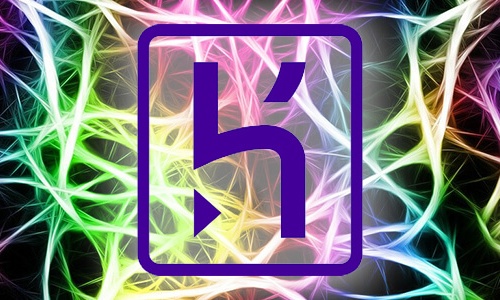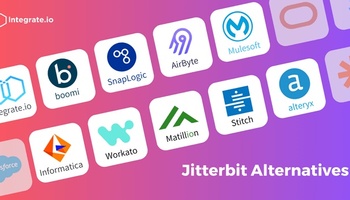If you're a developer trying to ETL data into and out of Heroku, the seemingly shortlist of options may disappoint you. Heroku itself promotes Heroku Connect, but this expensive solution might not even integrate with all the systems you use (like AdWords and Facebook), making it difficult to get a holistic view of your data.
Fortunately, Heroku Connect isn't the only solution. In fact, there are several third-party ETL tools that can help you get your data in and out of Heroku with ease.
When Is an ETL Integrator Helpful for Heroku?
One of the most common use cases for an ETL integrator with the Heroku app is Salesforce. If you use Salesforce as part of your business, being able to move data between Heroku and Salesforce is critical for having all the important data points in one place and simplifying your workflow.
Remember, a high-performance ETL tool should at minimum accommodate the following:
- Big Data: Combine structured data with unstructured data, allowing for true "big data" potential that isn't limited or restricted by the capabilities of your current platforms.
- Transformations: Transform data in any way necessary, including thorough data profiling and data cleansing. This results in more usable data for your business, which means better insights (and, therefore, better business performance).
- Monitoring: Monitor and manage your systems while they're live and in-production, ensuring data is syncing seamlessly and being handled in the exact what you intend for it to be. This prevents errors and lost data while improving overall operational efficiency and performance.
- Visuals: See a visual flow of your data as it moves across systems, giving you a much deeper understanding of how your data is being handled across all the platforms you use. Perfect for businesses using many technologies (i.e., SQL, system scripts, etc.).
If you turn to Heroku for a solution, they'll give you a handful of options, but none of them may do exactly what you need. In this guide, we'll take a more thorough look at the best integrators for Heroku so that you can get the most out of your data.
1) Heroku Connect
Before diving into the third-party integrators, we should first take a brief look at Heroku's own integrator, Heroku Connect. It's a straightforward solution if you need to connect directly to Salesforce or a handful of other platforms. However, the biggest issue with this tool is that it's not a one-stop solution, despite being one of the most-needed Heroku add ons.
For example, Heroku Connect will not connect to many systems you likely want to pull data from, like Facebook, AdWords or other helpful data sources that could be beneficial to your Salesforce data (or the data on another platform you're trying to integrate with).
Heroku Connect is also very expensive, starting at $80,000 USD per year. Pricing on its own makes deploying Connect fairly inaccessible for most businesses, even those working at the Heroku Enterprise level, simply due to its limited capabilities.
2) Integrate.io
As one of the most robust ETL platforms in the industry, Integrate.io can help you seamlessly connect Heroku with Salesforce, ad platforms, and countless other applications your business may be using. Plus, getting data to and from Amazon AWS, Google Cloud Services, and Microsoft Azure — among other sources — and reading data in Json format couldn't be simpler.
Best of all, Integrate.io has a very small learning curve thanks to a visual, drag-and-drop interface that requires no coding skills. This cuts back the time your team will take watching tutorials and interfacing with support staff, and it allows you to get back to app development far quicker.
Integrate.io gives you:
- A point-and-click front-end interface capable of designing everything from simple replication tasks to complex preparation and transformation tasks, all without code. See things in real-time as you connect web apps and mobile apps with ease.
- Out-of-the-box data transformations that will save you substantial time while keeping control over data flowing directly into your hands.
- The ability to schedule and monitor jobs using the intuitive user interface or the API. Ensure your data is valid, avoid errors, and monitor status for operational peace of mind.
All of this makes Integrate.io one of the best solutions on the market. Being highly scalable and accessible across the board, Integrate.io can grow with your company without the need for special training or accommodation to get it implemented into your business.
3) MuleSoft
This Platform as a Service (PaaS) is recommended by Heroku if you wish to create multi-system integrations that will allow you to manage the complete life cycle of your APIs. Of course, if you're hoping for a simple backend, MuleSoft is anything but.
The complexities of MuleSoft and the substantial training required can cause a host of problems. In fact, the AnyPoint Platform is notoriously difficult to use. Additionally, only a "MuleSoft Engineer" can build out ETL and ELT pipelines and Mule applications. The features also come at a major cost, making for a price point that many businesses simply can't afford.
Finally, as it is dependent on a desktop IDE, MuleSoft will be less than ideal if you're just after a reliable ETL integrator for Heroku and other platforms you use. So, when it comes to basic automation or just interfacing with your CRM, MuleSoft may just offer too much functionality that's complicated by devops complexity.
4) Stitch
As a cloud-based ETL platform, Stitch's offerings are great on paper. They also don't have the high-cost barriers of the Heroku platform's own solution (Heroku Connect) or MuleSoft. However, limitations on performance might hinder your processes. With a limit of five users, restricted data transformation, low-customization options, and low data volumes, Stitch is not often the ideal solution for growing startups.
So, although low-cost to get into, Stitch is likely an ETL tool your company would end up growing out of and moving away from in the future. Plus, with SOC 2 and HIPAA compliance only available at the enterprise-level plan, this lightweight ETL simply doesn't check all the boxes for many organizations.
The Best ETL Tool for Your Business
With Integrate.io, your business can start creating streamlined data pipelines quickly, allowing you to integrate all of your business' platforms and systems without the headache of using a dozen different integration tools or API calls. Learn more about what Integrate.io can do for your business by scheduling a demo with our support team.












